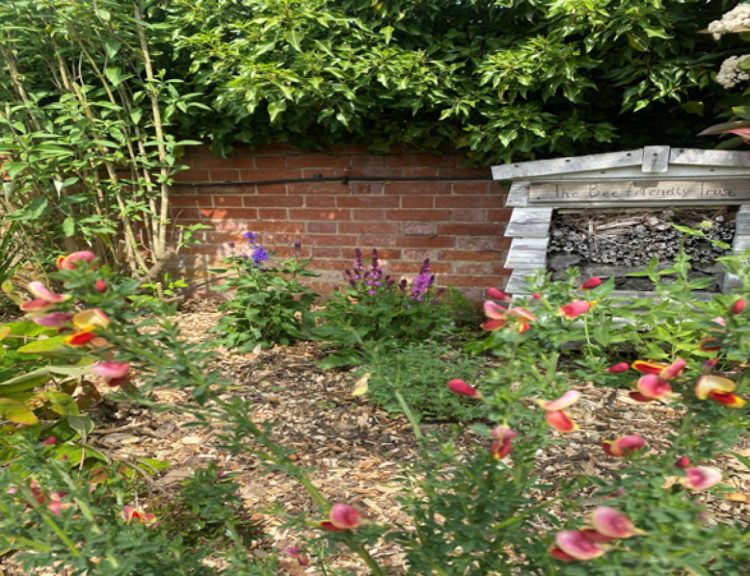Great Bentley rail station in north Essex has been accredited as ‘Wildlife Friendly’, recognising the efforts of community volunteers to support nature and improve biodiversity.

‘Station adopters’ create wildlife havens at stations across the Greater Anglia network, and the results are accredited through the ‘Greater Anglia Wildlife Friendly Stations Accreditation Scheme’, in which the operator works with the region’s Wildlife Trusts.
Peter Neale, Dawn Vinn, Jane Ryland and Daniel Ryland make up the Great Bentley station adopter team, and received the award after their efforts were assessed by an Essex Wildlife Trust Conservation Officer to check how well the station supports local plants and animals.

The station features ‘bee friendly’ planters, which were installed with the help of the Bee Friendly Trust and which are filled with plants rich in nectar. It also hosts an insect hotel and a community herb garden. The herbs are a good food source for pollinators and station users can harvest them for use at home.
The assessor’s report noted that Great Bentley station is in a great location for making a difference to local biodiversity, particularly as there are woodlands to the south and south-west of the village. Each assessment also offers advice on making the station even more wildlife-friendly. The reports are used as examples of good practice, so that volunteers at other stations around the region can use their ideas.
Nineteen Greater Anglia stations now have ‘Wildlife Friendly’ accreditation, with more expected to be certificated over the next year. Over three hundred volunteers work on the scheme, and last year transformed over 7,400 square metres of land into wildlife gardens.

Greater Anglia station adopters report over two hundred different species of creatures visiting their stations, including many different types of butterflies as well as bees, slow worms, bats, foxes, toads, lizards, deer and many varieties of birds.
Since the start of station adoption in East Anglia twenty years ago, the initiative has thrived, and the big majority of Greater Anglia stations now have station adopters. Their efforts not only enhance biodiversity, but also make the stations more attractive gateways to their communities.
Along with the rest of the rail industry, Greater Anglia has pledged to make stations across Britain more sustainable, taking action to reduce waste, support local wildlife and cut the carbon footprint of railway stations. The actions will follow the industry’s Sustainable Stations: Best Practice Guide, which outlines ways in which train operators can meet this commitment.
James Hogg, Development Officer at the Norfolk Wildlife Trust, the lead Trust for the initiative, said: “The alarming decline in the abundance of wildlife and the plight of species under threat means that just protecting the nature we have left is not enough; we need to put nature into recovery, and to do so at scale and with urgency.
“This project with Greater Anglia is a fantastic example of how people can transform nature-poor areas into new nature-rich places – and change the way we think about land, seizing opportunities to help nature outside traditional nature reserves.”
Greater Anglia’s Customer and Community Engagement Manager, Alan Neville, said, “We are delighted to partner with the region’s wildlife trusts to formally recognise the valuable work of our station adopter volunteers in supporting wildlife and improving their local environment.”
“I’d like to congratulate the volunteers at Great Bentley station on receiving this recognition and thank them for the incredible work that they are doing that is helping to support biodiversity locally.”






Responses